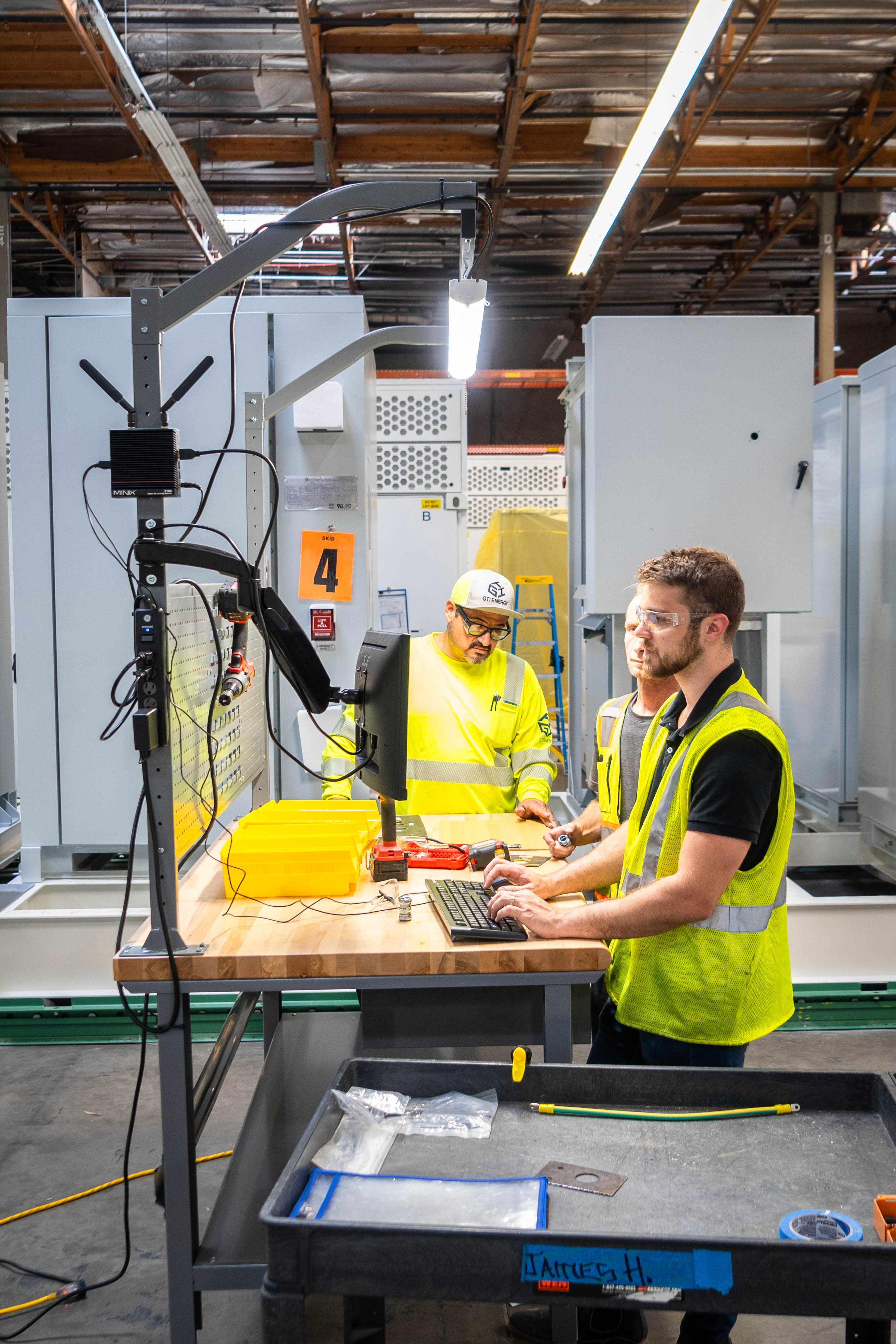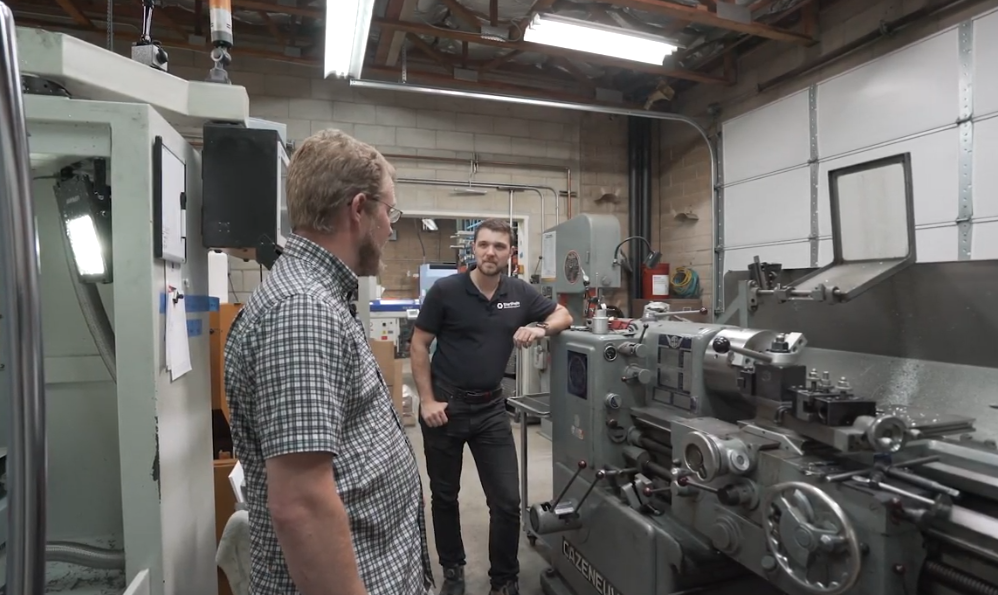
In today's competitive market, manufacturing companies need to monitor and evaluate their production performance, to stay ahead constantly.
Gathering and scrutinizing pertinent metrics is imperative to propel your manufacturing business to the top.
In the business realm, numbers hold immense power. The right metrics can help you pinpoint weak areas in your production line and processes, providing invaluable insights that can be used to refine and continuously enhance your business.
A systematic approach to collecting and reviewing metrics is essential for success.
This approach guarantees you're gathering the correct data and taking action based on your discoveries.
What Are Manufacturing Metrics?
Manufacturing metrics are used to evaluate and compare the effectiveness of maintenance cost of production processes.
Keeping track of key metrics is crucial in understanding how the business is performing, identifying areas for improvement, and making informed decisions.
What Are Manufacturing Metrics and KPIs?
Manufacturing metrics and KPIs are quantitative measures that help identify strengths and weaknesses.
Using KPIs lets you gain insight into how production contributes to achieving company goals.
So, how do you measure manufacturing performance?
To evaluate your plant operations' performance, use manufacturing metrics and KPIs to compare and analyze it over time.
Guidelines for Manufacturing Metrics
If you want to improve your business performance, using metrics that measure and analyze progress toward your goals is essential.
Regarding manufacturing, focus on Key Performance Indicators (KPIs) that promote process efficiency, product quality, and customer satisfaction.
To Identify the Right Metrics for Your Organization, Keep In Mind the Following Guidelines:
1) Clearly define and align your goals with your overall business objectives.
2) Choose metrics that can demonstrate when you achieve these goals.
3) Ensure the metrics are actionable and follow the SMART guidelines (specific, measurable, actionable, realistic, and time-based) for setting goals.
4) Use your ERP solution to capture the necessary data in real-time.
By following these guidelines, you can track your progress accurately and continuously improve your manufacturing performance.
This blog post will discuss the importance of key metrics (manufacturing KPIs) and visualizations in three main categories: quotes, sales orders, and manufacturing.
How Can Tracking Manufacturing Metrics Help Lower Manufacturing Costs?
Tracking manufacturing metrics is an essential process that yields valuable insights into production efficiency and manufacturing costs.
It provides a comprehensive view of areas that require improvement, reduces waste and downtime, optimizes resource utilization, improves quality control, and enables better decision-making.
Ultimately, these efforts streamline operations and increase productivity, reducing revenue and manufacturing costs.

Manufacturing KPI 1: Quotes
The Significance of Accurate Manufacturing Quotes
When generating manufacturing quotes, estimating the cost of raw materials, labor, and margins required to produce a specific item is necessary.
They assist businesses in achieving their production goals by providing a cost estimate for the desired item before beginning production.
By understanding their costs and production capabilities, businesses can price their items more effectively and ensure they meet their profit goals.
Additionally, comparing quotes from different manufacturers is a wise decision for customers.
It empowers them to assess pricing, quality, and delivery times and decide which manufacturer to select for their production needs.
Using quotes can give businesses important information about the supply chain process, which helps them plan for future production needs more effectively.
Tracking quotes is essential to monitor the sales pipeline and identify potential revenue streams.
It helps companies assess their lead generation and conversion efforts and detect potential customer trends.
Here are some important quote metrics:
- Quote Overview: Provides a snapshot of all quotes, giving a quick understanding of the current sales pipeline. This metric provides a comprehensive summary of all quotes, including key details such as value, status, and customer, to help companies evaluate their quoting performance and identify opportunities for improvement.
- Quote Status Breakdown: This metric provides a detailed overview of the status of different quotes, from initial request to finalization, enabling effective monitoring and management of the quoting process. This manufacturing metric indicates the distribution of quotes based on their status, enabling the company to identify bottlenecks and prioritize actions.
- Quote Conversion Rate: Evaluates the sales team's effectiveness in converting leads into customers, indicating the effectiveness of a company's sales and marketing strategies.
- Quotes by Customer: This is a manufacturing metric that measures the number of requests for quotes received from different customers, which helps in evaluating the demand and profitability of products from various customer segments. Additionally, this metric identifies the most valuable customers and their contribution to the overall sales pipeline.
- Quotes Value Over Time: Refers to the fluctuation of the worth of a certain stock or asset over a period of time as determined by the buying and selling activities in the market and helps visualize the sales team's performance in generating quotes over time.

Monitoring metrics such as quote turnaround time, win rate, and quote-to-order conversion rate can provide insight into the effectiveness of a company's sales process.
This information can help manufacturing businesses make data-driven decisions about their pricing strategies, product offerings, and sales tactics.
Manufacturing KPI 2: Sales Orders
Similarly, monitoring sales order metrics such as order fulfillment time, order accuracy, and order backlog can help manufacturing companies identify areas for improvement in their order processing and logistics.
What is Sales Order Management?
Sales order management encompasses the procedures, tools, and systems involved in managing a customer's order from placement to delivery, and even after, in the case of returns or repairs covered by a warranty program.
By monitoring these metrics on time delivery side, manufacturers can reduce order processing times, minimize errors, and improve customer satisfaction.
What Are Sales Order Management KPIs?
To enhance order management, businesses can monitor and address a specific set of key performance indicators (KPIs) related to order management.
Applying KPIs to the order management process can help businesses ensure they’re performing at an elite level at this critical stage of the customer relationship.
Many companies use an order management system (OMS) to monitor these critical metrics.
KPIs can be applied to every stage of the order management process.
To be actionable for operations teams, well-developed order management KPIs must be based on objective metrics.
Sales order metrics provide insights into the efficiency and effectiveness of the order fulfillment process.
They help businesses identify areas that need improvement, monitor customer trends, and assess overall performance.
Some Key Sales Order Metrics Include:
- Sales Order Overview: This offers a comprehensive view of all sales orders, allowing the company to track and manage its order fulfillment process. This metric provides a comprehensive summary of all sales orders, including key details such as value, status, and customer, to help companies evaluate their sales performance and identify opportunities for improvement.
- Sales Order Status Breakdown: Highlights the distribution of sales orders based on their status, enabling companies to address any potential issues. This metric provides a detailed overview of the status of different sales orders, from creation to fulfillment, enabling effective tracking and management of the sales order process.
- Sales Order Completion Rate: Measures the efficiency of the order fulfillment process. This metric measures the percentage of sales orders that are successfully completed, providing an indication of the effectiveness and efficiency of a company's sales and production processes.
- Sales Orders by Customer: Identifies the most valuable customers and their share in the total sales orders. This metric tracks the number of sales orders received from different customers, providing insight into the demand and popularity of products among various customer segments.
- Sales Revenue Over Time: Visualizes the revenue generated from sales orders over time, helping businesses track their growth. This metric tracks the amount of revenue generated by a company's products or services over a period of time, indicating the overall performance and growth of the business.
- Order Fulfillment Rate: Evaluate the efficiency of the order fulfillment process by comparing completed orders with total orders. This metric measures the percentage of customer orders that are delivered on time and in full, indicating the efficiency and reliability of a company's production and supply chain processes.

Manufacturing KPI 3: Manufacturing Process & Production Efficiency
Manufacturing metrics are crucial for understanding the production process's efficiency, identifying improvement areas, and ensuring product quality.
A dedicated dashboard for manufacturing gathers the most important KPIs in one place, allowing plant managers to monitor production data in real-time.
Some Important Manufacturing Metrics Include:
- Overall Equipment Effectiveness (OEE): When measuring the efficiency of a production process, it's important to take into account the total operations time as the maximum value. This requires factoring in both performance and availability, where availability is determined by the actual production time divided by the operating time. By considering these factors, it's possible to assess the overall efficiency of the process in terms of quality, performance, and availability.
- Cost (actual fact) vs. Cost (routing) Comparison: Helps identify discrepancies between the actual cost of production and the estimated cost.
- Cost vs. Sale Price Comparison: Assists in evaluating pricing strategies and profit margins.
- Profit Margin per Item: Measures the profitability of individual products.
- Inventory Turnover Ratio: Assesses how effectively the company is managing its inventory.
- Job Completion Rate: Evaluates the efficiency of the production process in completing jobs.
- Production Efficiency: Measures the effectiveness of the production process in terms of quality.
- Machine Uptime Rate: Evaluates the reliability and efficiency of the production equipment.
- Net Profit Margin: Measures the overall profitability of the business.
- Return on Assets (ROA): Evaluates the effectiveness of the company in generating profit from its assets.

Monitoring and analyzing key metrics in quotes, sales orders, and manufacturing is vital for manufacturing businesses to ensure their competitiveness and growth.
Additionally, monitoring manufacturing metrics such as production cycle time, yield, and defect rates can help manufacturers optimize their manufacturing processes and reduce costs.
By identifying areas of waste or inefficiency (looking at projected customer demand, production capacity utilization, costs, average inventory and other factors), manufacturers can improve their overall production output, reduce production costs, and improve product quality.
By understanding these metrics, businesses can make informed decisions, improve processes, overall equipment effectiveness, and increase profitability (aka save manufacturing cost per unit).
Regular evaluation of these metrics will help companies identify areas for improvement, optimize performance, and maintain a healthy bottom line and reduce total manufacturing cost, per unit.
How to Streamline Tracking and Reporting for Manufacturing Key Performance Indicators and Metrics with ERPs
In order to stay competitive, reduce manufacturing cost, and modernize manufacturing operations, it's recommended that organizations use ERP platforms.
These solutions can automate and integrate shop floor, value chain, supply chain, and enterprise data.
You can use the data to gather insight into manufacturing resource planning, integrated inventory and dynamic replenishment, warehouse management, financial accounting, and costing, customer and partner relationship management, e-commerce, and analytics.
It will help you uncover data-driven insights to take production speed, quality, and performance to new levels of excellence and ultimately reduce manufacturing cost.
To book a free demo head to: www.startproto.com/demo-request
Conclusion
Unlock the potential of AI manufacturing
Blogs & Resources
Industry trends, manufacturing business tips, and more




